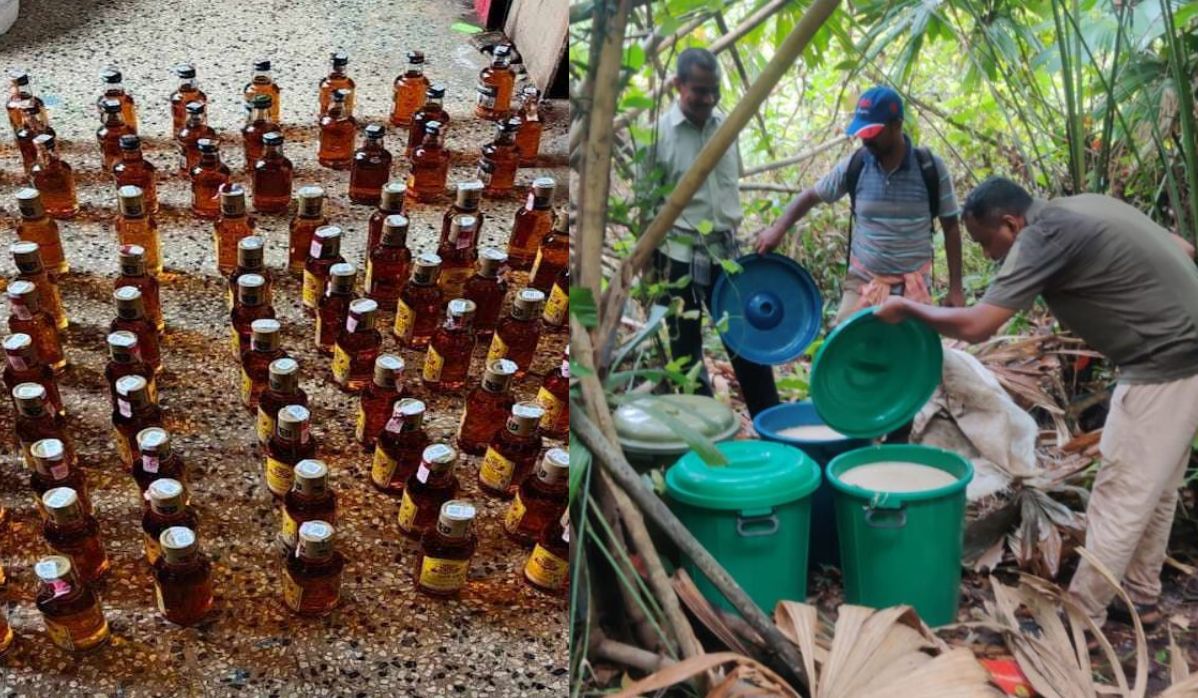Tarun Karthick
Campbell Bay, 04 December 2024
In the Andaman and Nicobar Islands, crimes involving the illicit manufacture, trade, and sale of local liquor and illicit trade and sale of Indian Made Foreign Liquor (IMFL) remain among the most common offences for which individuals are booked.
Historically, liquor-related crimes account for the highest number of registered cases across the Islands. The ease of entry into this illegal trade, coupled with low social stigma and lenient penalties, has made it an attractive avenue for anti-social elements. Repeat offenders are common, often returning to these illegal activities despite prior convictions, knowing that penalties under the existing legal framework lack severity.
Currently, the Andaman and Nicobar Police rely on the outdated Andaman and Nicobar Islands Regulation, 1876 (Regulation III of 1876) to address liquor-related crimes. However, in 2012, the Andaman and Nicobar Islands Excise Regulation, 2012 was promulgated by the Hon’ble President of India. This modern regulation offers stringent penalties, including imprisonment ranging from upto three months to seven years and fines between ₹50,000 and ₹1,00,000 or five times the value of the liquor involved, whichever is higher. Repeat offenders face double the prescribed punishment.
Despite its comprehensive provisions, the 2012 regulation is yet to be utilised effectively. This is because the Andaman and Nicobar Police have not been granted the necessary powers under the regulation. Nicobar Times has confirmed this through interactions with several police officers, including senior officials during press conferences.
Under Section 9 of the 2012 regulation, the Hon’ble Lt. Governor, as the Administrator, has the authority to extend the powers of an Excise Officer to non-excise officials through a notification. However, despite the regulation being promulgated over 14 years ago, this critical step has not been taken, leaving the police unable to act under its provisions.
Granting these powers to the police would be a game-changer in combating liquor-related crimes in the Islands. With a stronger legal framework, the police could push for harsher penalties and stricter punishments, creating a significant deterrent against these offences.
Moreover, effective implementation of the 2012 regulation could help curb alcohol addiction. The unrestricted availability of illicit liquor in almost every corner of the Islands, at all hours and to individuals of all ages, including children, is exacerbating alcohol dependence within the community. Strengthening enforcement could address this growing societal issue.
The lack of decisive action to empower the police under the 2012 regulation continues to impede efforts to address this widespread issue. Implementing the robust and modern ‘Andaman and Nicobar Islands Excise Regulation, 2012’ to combat liquor-related crimes has become an urgent necessity for the Andaman and Nicobar Islands.

